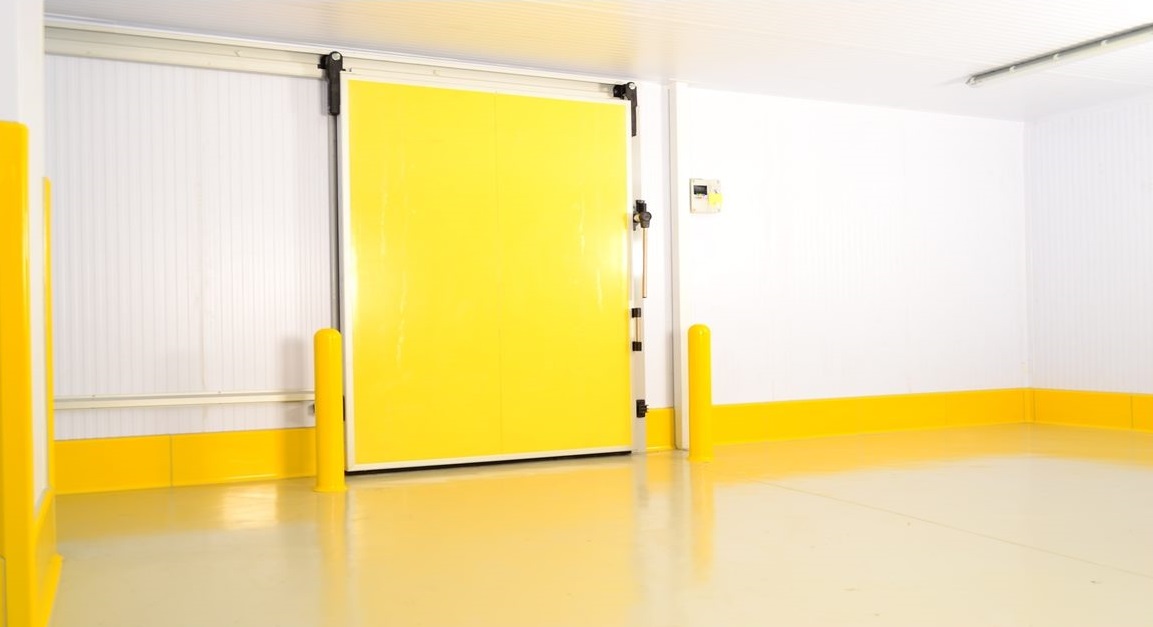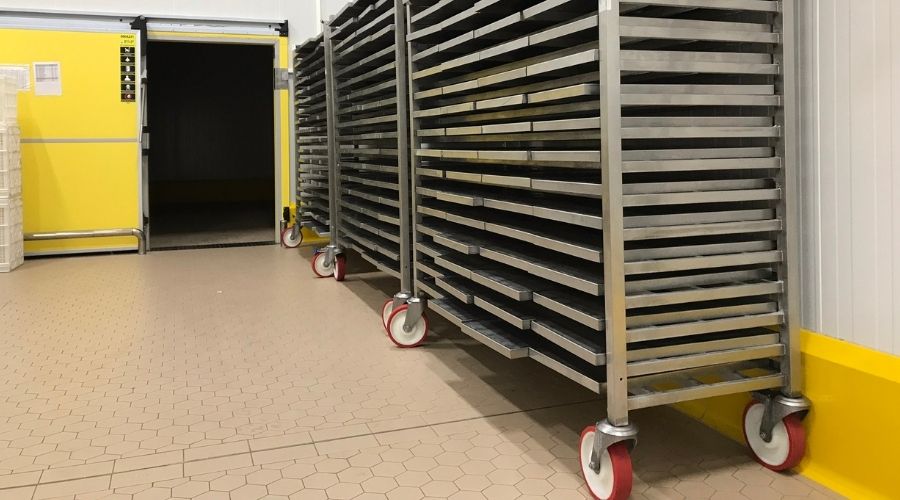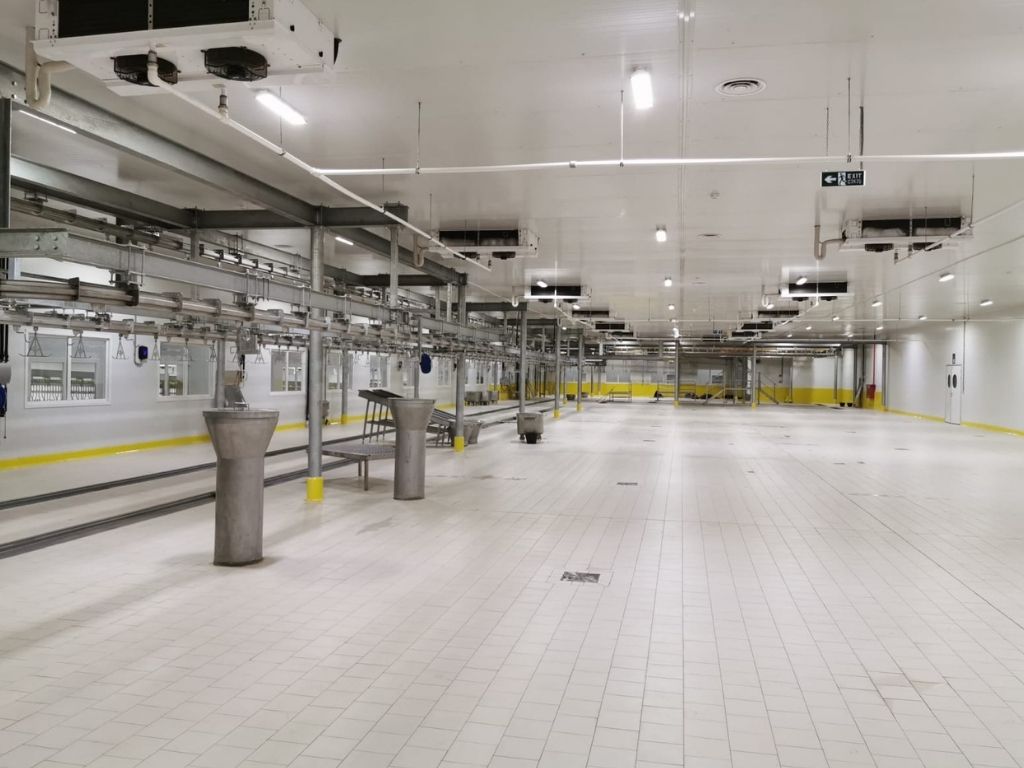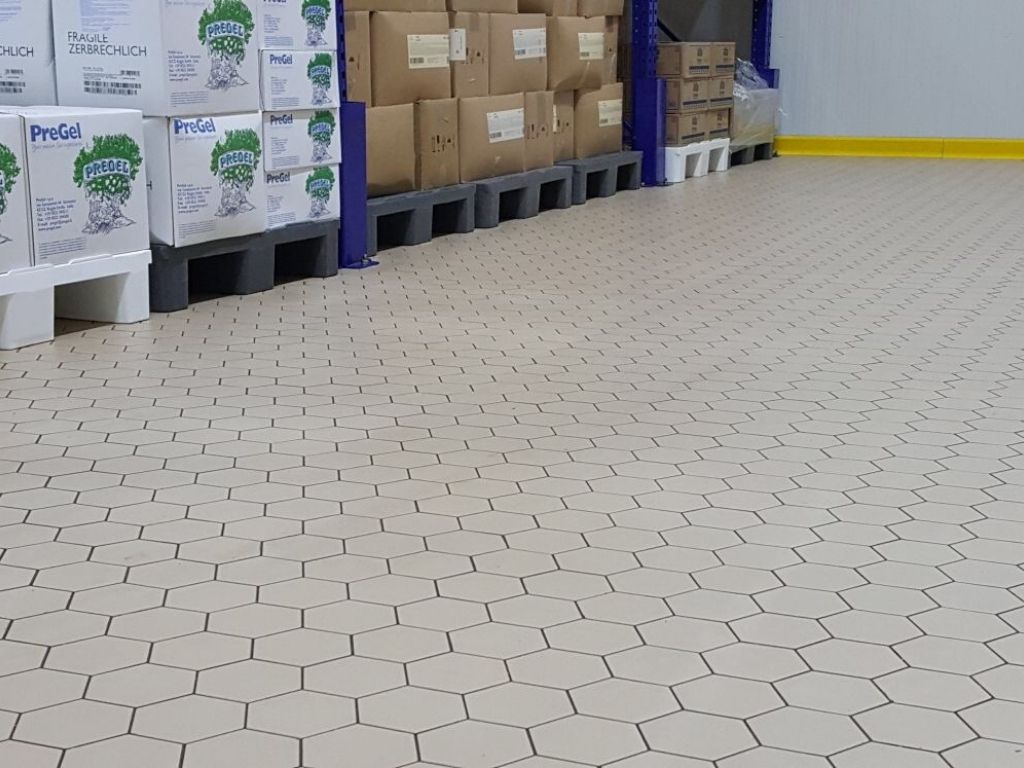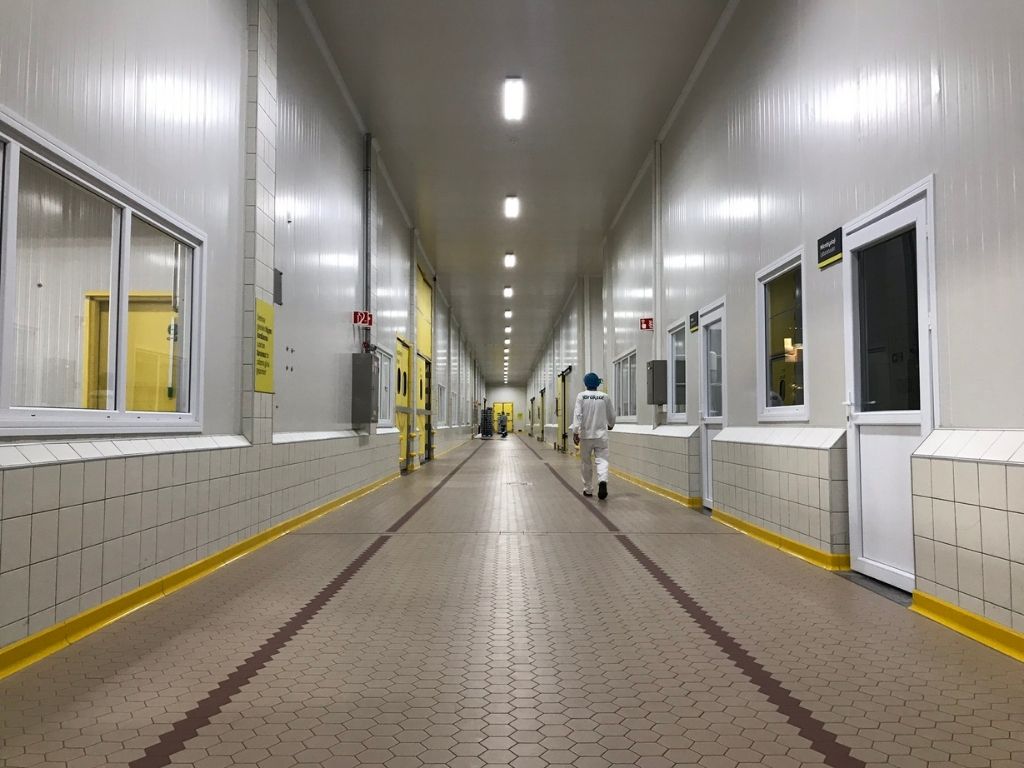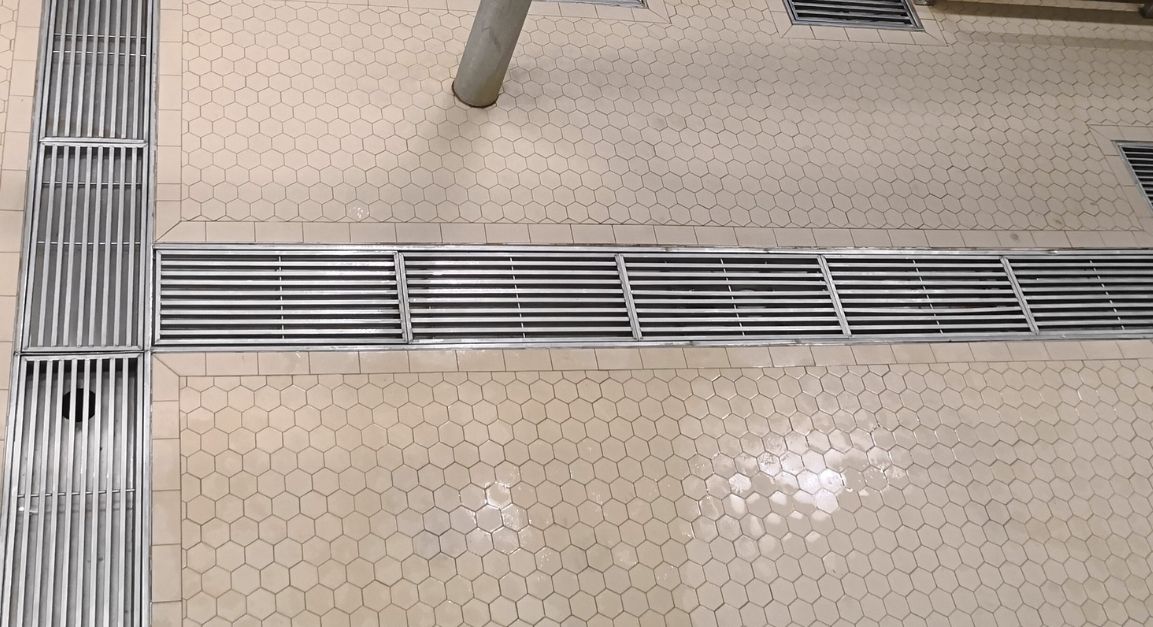Food Safe Wall Panels For The Food Industry
Food-safe wall panels ensure the application of high hygiene conditions, which are very necessary for businesses. Thanks to the acid proof and anti-bacterial properties of the food-safe wall panels, it minimizes the formation of microorganisms. It protects walls and columns from impacts and provides long-lasting use.
What is hygienic wall protection?
Hygienic wall protection is special protection panels applied to walls and corners that provide hygienic conditions, especially in food production enterprises. It is very important to provide the necessary hygienic conditions in food production areas. Failure to provide hygiene in food production jeopardizes consumer health. Especially at the bottom of the walls and panels, bacteria formation occurs frequently. Food-safe wall panels, which Vibroser produces to prevent the formation of bacteria in these areas, are very important for providing a hygienic environment.
Although cleaning is carried out, especially in areas such as walls or corners, bacterial growth may occur that cleaning tools cannot reach. This leads to greater hygiene problems as time goes on. In this case, the required hygiene in-wall and corner connections are only possible with hygienic wall protection panels.
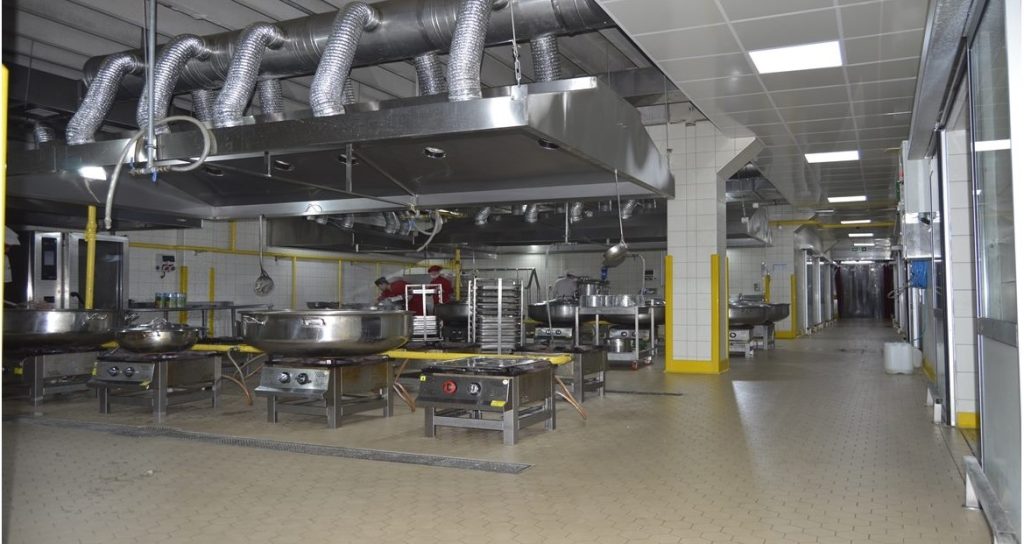
Why do wall panels use for the food industry?
In food production facilities, products that are not suitable for health and hygiene conditions may cause the business to come to a halt. Therefore, it is very important to take the necessary safety and hygiene measures. Since it is difficult to clean the wall and corner areas between cleaning processes, it is only possible to keep these areas clean with wall panels for the food industry. Hygienic wall protection panels prevent bacteria formation in areas where you apply them. In this way, they provide an important advantage for businesses.
They provide a cleaner appearance by eliminating the formation of bacteria and providing protection against dust, dampness, and similar contamination that may occur in these areas. Thanks to it, wall panels for the food industry, which also prevent the wear of the area, greatly affect the creation of sheltered, clean, hygienic, and aesthetic-looking regions. In addition, these panels do not damage the wall and the area where you use them in any way and are suitable for easy removal .
In which areas are food-safe wall panels used?
Food-safe wall panels offer a wide range of usage areas. Food production is an area that requires much more attention than other production sites. This is only possible with food-grade wall panels, as it is important to ensure the right hygiene conditions in these areas. The usage areas of these special products we can list as follows for food businesses;
- Bakery, patisserie, bakery product production areas,
- Meat and dairy production and processing facilities,
- Fish production and processing facilities,
- Delicatessen,
- Areas such as cafes, restaurants, restaurants, dining halls,
- Facilities that produce various oils,
- Meat and meat processing facilities,
- Milk and milk production facilities,
- Markets,
- Food storage and storage areas
Wall panels are suitable for use in all production or processing areas in the food industry. Food-safe wall panels are suitable for small and very large businesses. In addition to the high protection conditions they provide, they also cause a more beautiful appearance in terms of aesthetics.
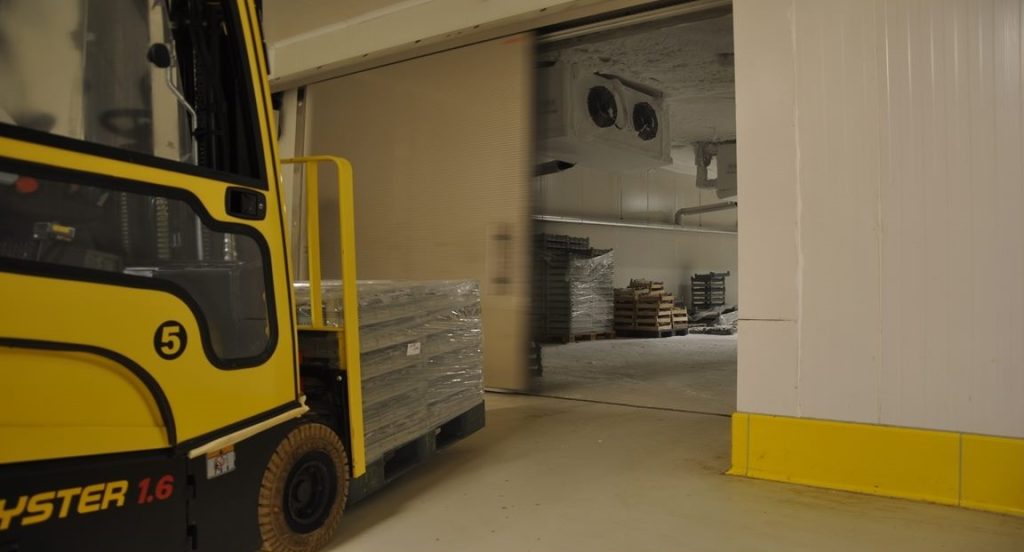
What are the features of food processing wall panels?
Food-safe wall panels offer the right solutions for areas where hygiene is very important. Thanks to its production in different sizes, it provides the right solutions to the structural features of the business. It is also suitable for use in large facilities with a large area. It is especially advantageous to use in large facility areas. Because it is difficult to clean these areas, food processing wall panels also allow easy cleaning. It eliminates dirt and problems that may occur at walls and panel bottoms.
- Firstly, can easily maintain cleanable wall panels with radius form.
- Secondly, thanks to their colors, workers easily notice the products, which act as warning bands and prevent possible work accidents.
- Thirdly, Since they are produced in different heights, they ensure that expectations are met correctly.
- Fourthly, Thanks to their particularly thick body structures, insulated wall panels have features that will create heat savings for food-class businesses.
- Moreover, it prevents bacteria formation,
- Also, protects panels, walls, and columns in facilities from light and medium impacts.
- Last but not least, they are products with smooth surfaces, resistant to acids and chemicals, produced from acrylic material.
With these features, food-safe wall panels create great advantages.
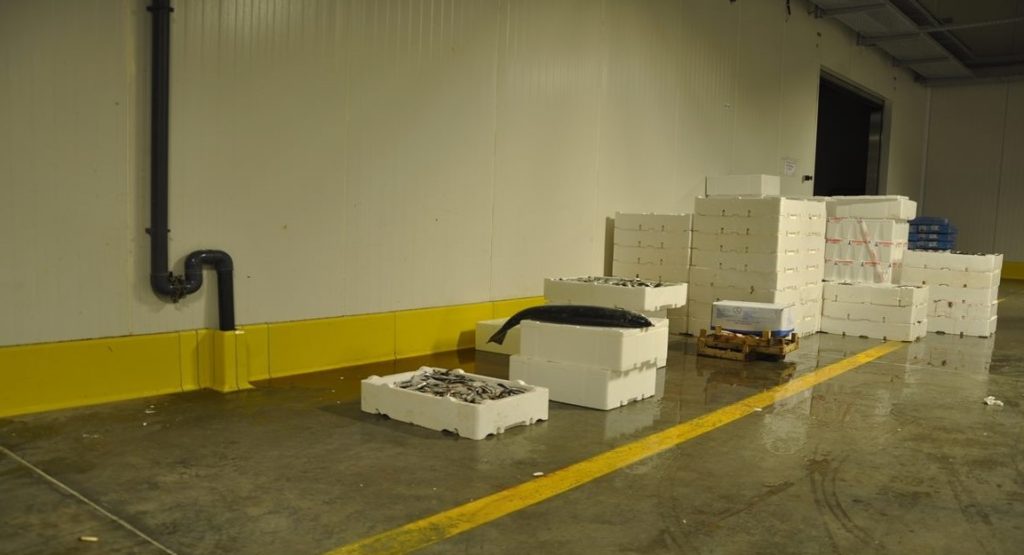
Vibroser hygiene, antimicrobial wall panels
Vibroser hygiene baseboard panel protectors are produced as a solution to the hygiene needs of enterprises. They are food safe and products with migration test certificates. Vibroser hygiene skirting panel protectors do not contain glass fiber for human health and food safety. Our products are registered. You can request special production for your project by contacting us.

